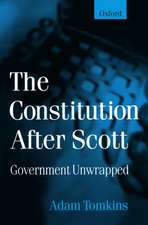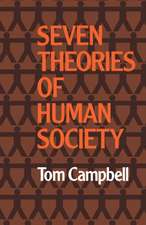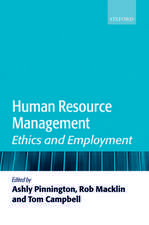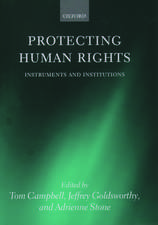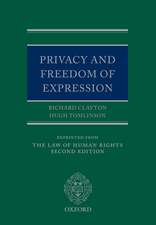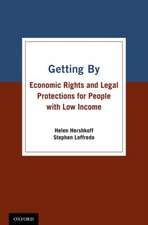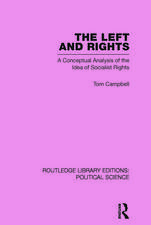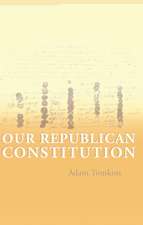The Legal Protection of Human Rights: Sceptical Essays
Editat de Tom Campbell, K. D. Ewing, Adam Tomkinsen Limba Engleză Hardback – 24 feb 2011
| Toate formatele și edițiile | Preț | Express |
|---|---|---|
| Paperback (1) | 516.08 lei 31-37 zile | |
| OUP OXFORD – 24 feb 2011 | 516.08 lei 31-37 zile | |
| Hardback (1) | 594.90 lei 31-37 zile | |
| OUP OXFORD – 24 feb 2011 | 594.90 lei 31-37 zile |
Preț: 594.90 lei
Preț vechi: 846.39 lei
-30% Nou
Puncte Express: 892
Preț estimativ în valută:
113.83€ • 118.85$ • 94.21£
113.83€ • 118.85$ • 94.21£
Carte tipărită la comandă
Livrare economică 25-31 martie
Preluare comenzi: 021 569.72.76
Specificații
ISBN-13: 9780199606078
ISBN-10: 0199606072
Pagini: 548
Dimensiuni: 156 x 238 x 38 mm
Greutate: 0.98 kg
Editura: OUP OXFORD
Colecția OUP Oxford
Locul publicării:Oxford, United Kingdom
ISBN-10: 0199606072
Pagini: 548
Dimensiuni: 156 x 238 x 38 mm
Greutate: 0.98 kg
Editura: OUP OXFORD
Colecția OUP Oxford
Locul publicării:Oxford, United Kingdom
Notă biografică
Educated in Britain, Tom Campbell was Professor of Philosophy at the University of Stirling and Professor of Jurisprudence at the University of Glasgow before being appointed Professor of Law at the Australian National University and then Professorial Fellow in the Centre for Applied Philosophy and Public Ethics (CAPPE) at Charles Sturt University. He is the author and editor of several books, including Seven Theories of Human Society, Rights, and Justice.Keith Ewing is Professor of Public Law at King's College London, and is one of the country's leading civil liberties lawyers. He is the author of Freedom under Thatcher: Civil Liberties in Modern Britain (with Conor Gearty) and his other books include Bonfire of the Liberties, The Right to Strike and The Struggle for Civil Liberties (also with Conor Gearty). Adam Tomkins has held the John Millar Chair in Public Law at the University of Glasgow since 2003. Prior to that he taught at St Catherine's College, Oxford, and at King's College London. He is the author of a number of books, including the Clarendon Law Series title Public Law and also British Government and the Constitution (with Colin Turpin).
Recenzii
The collection of essays in this volume represents a significant scholarly contribution to debates about the Human Rights Act 1998, supporting a broadening of focus, from the internal content of rights' jurisprudence to a consideration of alternative means of their protection.
This is a rich and detailed volume to which a short review cannot do justice.
The book is meticulously foot noted and, for the convenience of practitioners, academics and students alike, there are copious tables of cases, treaties and legislation.
...this book has done a worthy service in adding argument and ammunition to this debate, the outcome of which will certainly affect us all.
Together with the extensive referencing and comprehensive use of cases and statues, this book can be a valuable resource for academics and their students, as well as practitioners.
This is a rich and detailed volume to which a short review cannot do justice.
The book is meticulously foot noted and, for the convenience of practitioners, academics and students alike, there are copious tables of cases, treaties and legislation.
...this book has done a worthy service in adding argument and ammunition to this debate, the outcome of which will certainly affect us all.
Together with the extensive referencing and comprehensive use of cases and statues, this book can be a valuable resource for academics and their students, as well as practitioners.



